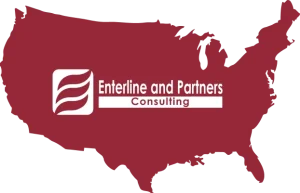In a recent announcement from the United States Department of State (“DOS”), the Bureau of Consular Affairs reaffirmed its commitment in providing the current status of worldwide immigrant and nonimmigrant visa processing operations. Specifically, DOS has been updating the public on how embassies and consulates affected by the COVID-19 pandemic have started to prioritize immigrant visa applications while DOS continues to reduce the backlog as a result of local travel restrictions and operational limitations.
While embassies and consulates that process both immigrant and nonimmigrant visas have been prioritizing immigrant visa applications, the volume and type of visa applications that each post has been able to process largely depends on the conditions in each country including movement controls and gathering limitations imposed by each country’s government.
The DOS has expressed empathy and compassion for those affected by delayed processing acknowledging that petitioners and beneficiaries in the immigrant visa process are individuals and not just numbers. The agency likewise acknowledges the ongoing stress and hardship both petitioners and beneficiaries have suffered as a result of reduced U.S. embassy and consulate operational capacity. While the guiding principle on which the DOS has based immigrant visa prioritization is family reunification is of greatest importance to the U.S. government’s immigration policy, it’s current prioritization plan is based on clear direction from the U.S. Congress that DOS must adopt a policy of prioritizing immediate relative immigrant visa applicants (the spouse, parents and children of U.S. Citizens) and K-1 fiancés of U.S. citizens followed by family-based preference visa applicants.
As a result of Congress’s direction, DOS has been focusing on a tiered approach as consular operations resume and expand to pre-pandemic levels.
- Tier One: Immediate relatives, inter-adoption, age-out cases (cases where the applicant child will no longer qualify due to their age) and certain special immigrant visas (i.e. SQ and SI for Afghanistan and Iraqi citizens working for the U.S. government).
- Tier Two: Immediate Relatives, K-1 fiancé and returning residents.
- Tier Three: Family preference immigrants and SE Special Immigrant Visas for certain employees of the U.S. government abroad.
- Tier Four: All other immigrant visas including employment preference and diversity visas.
With embassies and consulates continuing to face significant backlogs in all immigrant visa categories, the prioritization plan aims to maximize limited resources to accommodate as many immediate relatives and fiancé cases (subject to available resources) with a goal of minimizing an ongoing backlog in these categories.
For more information on immigrant visa backlogs in Vietnam, the Philippines and Taiwan, contact us today at info@enterlinepartners.com and speak with a U.S. immigration attorney in Ho Chi Minh City, Manila and Taipei.
ENTERLINE & PARTNERS CONSULTING
Ho Chi Minh City, Vietnam Office
Suite 601, 6th Floor, Saigon Tower
29 Le Duan Street
Ben Nghe Ward, District 1
Ho Chi Minh City, Vietnam
Tel: +84 933 301 488
Email: info@enterlinepartners.com
Facebook: Enterline & Partners – Dịch vụ Thị thực và Định cư Hoa Kỳ
Website: http://enterlinepartners.com
Manila, Philippines Office
Tel: +632 5310 1491
Email: info@enterlinepartners.com
Facebook: Enterline and Partners Philippines
Website: https://enterlinepartners.com/language/en/welcome/
Copyright 2021. This article is for information purposes only and does not constitute legal advice. This article may be changed with or without notice. The opinions expressed in this article are those of Enterline and Partners only.








